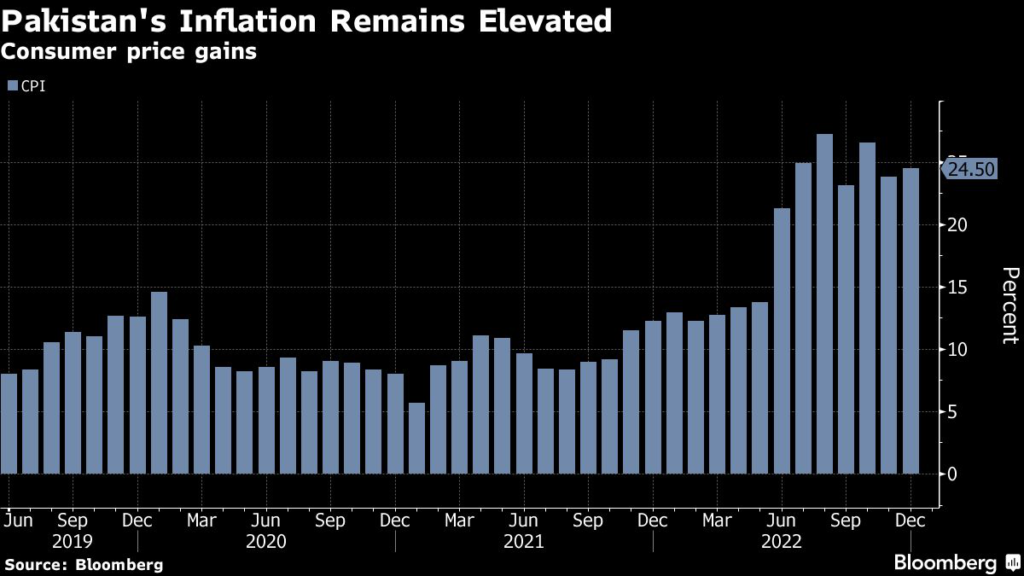Pakistan’s inflation rose more than expected last month driven by high food and fuel prices, indicating that the central bank will keep borrowing cost elevated in its next monetary review.
(Bloomberg) — Sign up for the New Economy Daily newsletter, follow us @economics and subscribe to our podcast.
Pakistan’s inflation rose more than expected last month driven by high food and fuel prices, indicating that the central bank will keep borrowing cost elevated in its next monetary review.
Consumer prices rose 24.50% in December from a year earlier, according to data released by statistics department Monday. That compares with a median estimate for a 24% gain in a Bloomberg survey and a 23.84% jump in November.
Food inflation quickened 35.5% year-on-year, while transport prices rose 41.2%, data showed. Clothing and footwear prices accelerated 17.1% and housing, water and electricity costs rose at 7%.
The reading highlights that price pressures are more persistent than earlier anticipated. The nation’s central bank hiked interest rates by 625 basis points last year to tame prices and expects inflation to fall to 5-7% range by end of next fiscal year ending June. The monetary authority will hold its next policy review on Jan. 23.
Prices have stayed in double digits since Nov. 2021 amid supply disruptions due to the war in Ukraine and floods that ravaged the country. Authorities also raised fuel prices and power tariffs to meet key conditions to secure the International Monetary Fund bailout.
–With assistance from Faseeh Mangi.
(Updates with details in third paragraph and chart.)
More stories like this are available on bloomberg.com
©2023 Bloomberg L.P.










